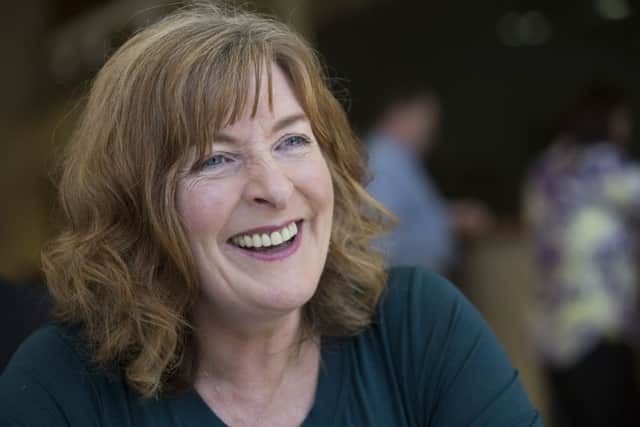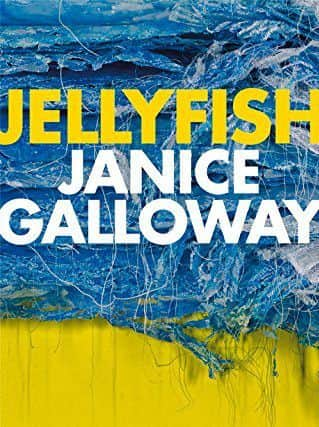Book review: Jellyfish, Janice Galloway


Galloway has never been a prolific writer, but she has always been an admired one, and most of her books have won prizes. She holds much the same place in Scottish Literature today that the excellent Elspeth Davie did 20 or 30 years ago.
Her publisher tells us that in this collection she “takes on David Lodge’s assertion – ‘Literature is mostly about having sex and not much about having children; life’s the other way round’ – and scent-marks her multi-layered fiction with what she believes to be the greater truth.” I don’t know what “scent-marks” means, but there is a lot about both sex and having children in these stories. Actually, Lodge’s is one of these smart remarks that sounds good but isn’t necessarily true. Children and parenthood have always featured in fiction – there’s more about childhood than sex in Dickens, for example, and countless novels and stories have dealt with either ungrateful children or inadequate, sometimes wicked, parents.
Advertisement
Hide AdGalloway’s aren’t the kind of stories you can relate; there is little in the way of narrative. To this extent they obey the Creative Writing Course mantra: show, don’t tell. Galloway is good at showing. She offers vivid snatches of observed and imagined life. She makes pictures, sometimes beautiful, sometimes startling. She has a gift for the unforeseen and illuminating phrase. She crafts these pieces carefully. You may have the impression that the writing is spontaneous, but you suspect it has been subject to scrupulous revision. She is adept at entering the minds of her female characters, and also children’s. Her men are portrayed from outside, as seen by women. When she attempts more than this – a story about Orwell on Jura, for instance, she is less persuasive. It tells us nothing about Orwell that isn’t well-known, and one wonders if the story might have worked better if the character had been entirely fictional. Fidelity to what is known has put a brake on her imagination.


The title story, about a mother’s trip to the seaside with her four-year-old son, the week before he starts school and takes the first steps away from her, out of the maternal leading-reins, is delightful, and rings absolutely true. There is another very good one about a woman called Lola who sings Carmen out of tune in the bath, before dolling herself up to go on the town, to the bemused fascination of her lodger, a 15-year-old runaway girl.
Another, entitled ‘and drugs and rock and roll’ – the titles are all irritatingly and pointlessly lower case – is excellent. It is set in the psychiatric ward of a hospital where the main character is hoping to get her life in order after an abortion. Here Galloway gives herself enough space to offer more than snapshot, to present us with credible characters, while the heroine resists and resents her boyfriend or husband’s insistence that she doesn’t belong there, but should be at home with him so that they can sort things out together. This story goes deeper than most. “The thing was, she didn’t believe what Gerry believed. Matter how hard he wanted her to. That in here, even with all the time-wasting and barely-getting-by and boredom that drove you to the bottom of where you had to go, she had grasped that the only thing that fixed anything at all was ‘coming to terms’. You had to look at what you were doing, at who you were. And if medicine helped her get her head back and didn’t just blow it away, that was what she’d choose. This horrible, daily business of owning your own life.”
Inevitably, not everything succeeds. Galloway takes chances. Her way of writing is hit or miss. In another story, set on Jura, a disturbed woman watches the deer. “Something primitive, she guessed was drawing them”. “Primitive” is surely the wrong word. “Her too. Deer did not judge. Did not speculate about her motives; they simply were. And so, they decided, was she… This was their element, not hers. But she had permission to stay.”
Miss, not hit, pretentious miss, and the story never recovers.
At her best, Galloway lets you see the world in a different light, from an unusual angle, making familiar things strange. This is her special talent, and it is a rare one. She has sympathy for women whose lives have taken the wrong turn, and persuades the reader to share the feeling. She speaks up for damaged lives.
Advertisement
Hide AdHer weakness is common to gifted phrase-makers – a tendency to over-write, to lose focus in a blur of words. It’s the obverse of her rare ability to illuminate the everyday.
You have to take writers as they are. Their strengths and weaknesses are often inseparable, and in any case, short stories of the kind Galloway writes are like poems. Sometimes they work, sometimes they don’t, but when they come off, the rewards are rich.